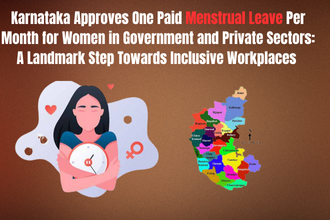Introduction
The 2020 North-East Delhi riots continue to reverberate through India’s legal and political landscape. Among the most high-profile cases linked to the violence is FIR No. 59 of 2020, registered under the Unlawful Activities (Prevention) Act (UAPA), 1967 and the Indian Penal Code (IPC), 1860. The case alleges a larger conspiracy behind the communal riots that shook Delhi in February 2020. One of the key accused, Sharjeel Imam, has now approached the Supreme Court of India after being denied bail by the Delhi High Court. His petition raises critical questions on bail under UAPA, free speech, the right to a speedy trial, and the constitutional guarantees of liberty under Article 21.
This article examines the background of the case, the High Court’s ruling, Sharjeel Imam’s arguments before the Apex Court, and the wider implications of the matter on UAPA jurisprudence.
Background of the Case
Sharjeel Imam, a former Jawaharlal Nehru University (JNU) student, was arrested on January 28, 2020. The Delhi Police’s Special Cell alleged that he, along with co-accused such as Umar Khalid, Khalid Saifi, Ishrat Jahan, Gulfisha Fatima, and others, was part of a premeditated conspiracy to instigate violence during the protests against the Citizenship Amendment Act (CAA).
The prosecution contends that speeches delivered by Imam and others were inflammatory and communal in nature, aimed at mobilizing members of the Muslim community. According to the Delhi Police, this alleged conspiracy was executed through protests, road blockades, and mobilization drives that eventually culminated in the riots.
The FIR No. 59/2020 invokes multiple sections of IPC, including sedition, rioting, and criminal conspiracy, along with stringent provisions of UAPA such as Sections 13, 16, 17, and 18 (relating to unlawful activities and terrorist acts).
Delhi High Court’s Denial of Bail
On September 2, 2025, a division bench of Justice Navin Chawla and Justice Shalinder Kaur of the Delhi High Court rejected the bail plea of Sharjeel Imam. The same order also denied bail to several co-accused including Umar Khalid, Athar Khan, Khalid Saifi, and others.
The High Court observed that:
- Prima facie evidence suggested that the role of Imam and Umar Khalid was “grave.”
- The speeches made by them were not merely political dissent but incendiary, having the potential to disturb communal harmony.
- The alleged conspiracy was aimed at mobilizing people on communal lines, which directly contributed to the riots.
- A hurried trial would be counterproductive, and therefore, the natural pace of the trial must continue.
This ruling aligned with earlier decisions where the Delhi High Court maintained a cautious approach in granting bail under UAPA, given its stringent bail restrictions under Section 43D(5).
Sharjeel Imam’s Appeal in the Supreme Court
Sharjeel Imam has now filed a Special Leave Petition (SLP) before the Supreme Court, challenging the Delhi High Court’s order. The case has been registered as Sharjeel Imam vs. The State NCT of Delhi, Diary No. 50847/2025.
His grounds for appeal include:
- Violation of Article 21 (Right to Liberty): Imam has been in custody since January 2020, over five years, without the trial reaching a meaningful conclusion. Prolonged incarceration without conviction violates the principle of speedy trial.
- Misinterpretation of Speeches: His speeches, while critical of government policies, were allegedly political in nature and not intended to incite violence. The prosecution’s interpretation, he argues, criminalizes dissent.
- No Direct Link to Violence: Imam contends that there is no material evidence showing that his speeches directly instigated violence or that he participated in any violent act.
- Overuse of UAPA: The defense argues that UAPA has been invoked excessively and disproportionately, thereby restricting the scope of bail under Section 43D(5).
Broader Legal and Political Implications
The Supreme Court’s decision on Imam’s bail plea will have far-reaching consequences. Some key aspects include:
1. Bail Jurisprudence under UAPA
The case will once again test the interpretation of Section 43D(5) UAPA, which makes bail nearly impossible unless the accused can prove that no prima facie case exists. The Apex Court has previously held in cases like Union of India v. K.A. Najeeb (2021) that prolonged incarceration can be a ground for granting bail under UAPA.
2. Free Speech vs. National Security
The issue also raises the tension between free speech rights under Article 19(1)(a) and restrictions on speech deemed inflammatory or threatening to public order. Imam’s defense hinges on the argument that criticism of government policies cannot be equated with terrorism.
3. Impact on Co-Accused
Given that Umar Khalid and others are similarly placed in the conspiracy case, the Supreme Court’s ruling could set a precedent affecting their bail applications as well.
4. Political and Social Sensitivity
The case has deep political undertones. The Delhi riots and CAA protests remain politically charged subjects. Any judicial ruling will inevitably attract scrutiny from both civil society and political groups.
The Way Forward
As of now, the matter is yet to be listed for hearing before the Supreme Court. The outcome will depend on how the Court balances national security concerns with constitutional liberties. If the Apex Court leans towards granting bail, it may signal a more liberal approach to prolonged detention under UAPA. Conversely, if bail is denied, it would reaffirm the judiciary’s cautious stance in cases involving alleged terrorist conspiracies.
Conclusion
The case of Sharjeel Imam vs. State NCT of Delhi is not just about one individual’s bail plea. It touches upon the core of India’s criminal justice system: the balance between liberty and security, the limits of dissent in a democracy, and the use of stringent anti-terror laws. As the Supreme Court prepares to hear Imam’s plea, the judgment will likely shape the contours of bail jurisprudence under UAPA for years to come.
For now, Sharjeel Imam’s fate—and that of several co-accused—rests with the Apex Court, which must decide whether prolonged pre-trial detention under a stringent law can withstand constitutional scrutiny in light of Article 21’s guarantee of personal liberty.
Also Read
Delhi Court Restrains Journalists from Publishing ‘Defamatory, Unverified’ Reports on Adani Group


